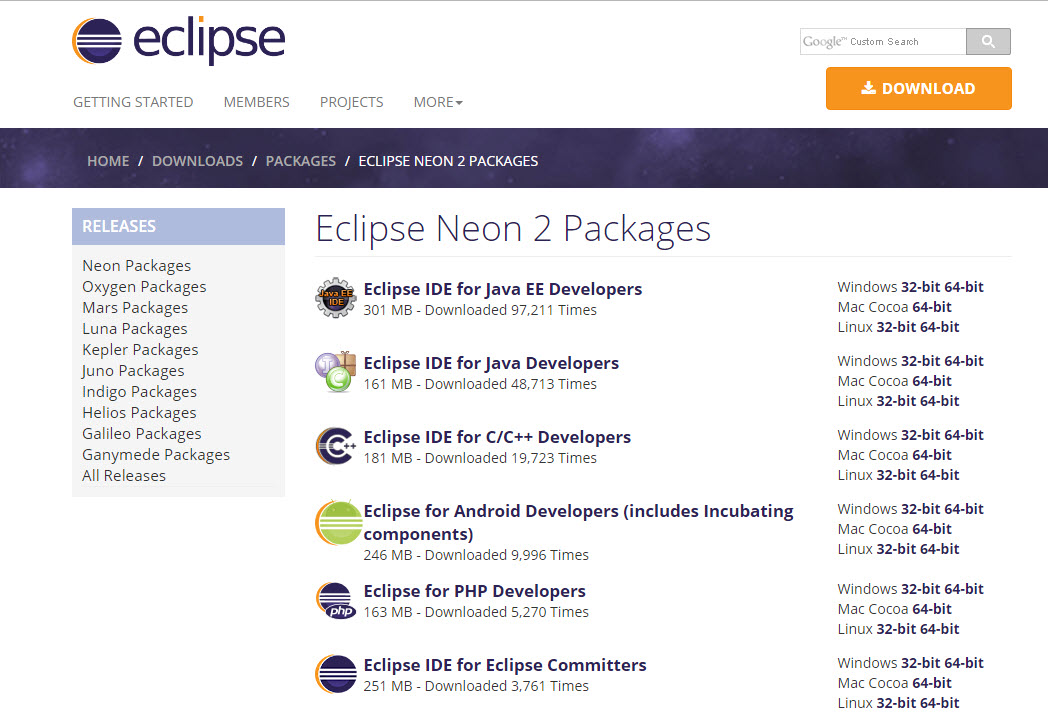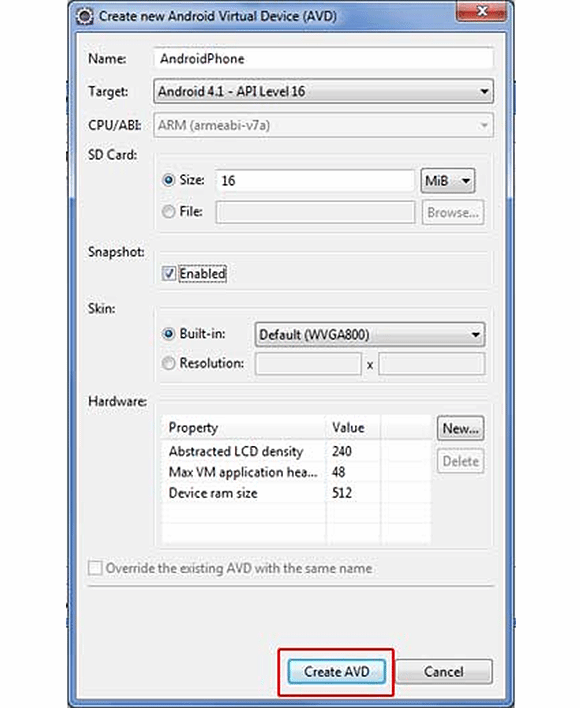

The workspace contains files, folders, and other resources that comprise your projects.

Note: An Eclipse workspace is a disk location that’s associated with a workbench instance, where a workbench is a runtime instance of the Eclipse IDE. Furthermore it reveals the Workspace Launcher dialog box, which lets you choose a workspace folder for storing the current session’s Eclipse projects. Figure 20 reveals a splash screen identifying this IDE. This shortcut makes it convenient to launch the Eclipse IDE.
Eclipse for mac android development install#
I chose to download Eclipse Classic 3.7.1 for the Windows XP platform.Īssuming that you are also running Windows, point your browser to the Eclipse Classic 3.7.1 web page ( ), and then perform the following steps to download and install this package: The website makes several IDE packages that meet different requirements available for download. Google recommends that you install one of the following packages: Installing EclipseĪccording to Google’s system requirements, you must install an Eclipse 3.6 (Helios) or greater package that includes the Java Development Tools (JDT) plugin.
Eclipse for mac android development how to#
You can then learn how to create and run W2A in this environment. First, you learn how to install this IDE, and then learn how to install the ADT Plugin, which simplifies Android app development and testing. Lesson 7 completes this course by teaching you how to use Eclipse to develop W2A. For this reason, you might prefer to use the Eclipse Integrated Development Environment (IDE). Although it’s not too demanding to develop simple Android apps (e.g., Lesson 3’s W2A app) at the command line, you will probably find it tedious to develop more complex apps in this environment.


 0 kommentar(er)
0 kommentar(er)
